The Department of Electrical and Electronics Engineering, SRM University, Sonepat organized a one-day “Skill Development Program on Power Plant familiarization and Simulator” at National Power Training Institute (NPTI), Faridabad for EEE Students. Students have attended one day workshop on 12th October, 2017 along with faculty members, Dr. Deepika Yadav, Mr. Gaurav Verma and Mr. Nurmesh Bhartiya. The main aim of the visit was to familiarize students with the Indian power sector and power plant simulator. Also, students have attended expert lecture on Geographic Information System (GIS) Software and Application of remote sensing to meet the emerging needs of industry.
About National Power Training Institute (NPTI)
NPTI an ISO 9001 & ISO 14001 organization, is a National Apex body for Training and HRD in Power Sector with its Corporate Office at Faridabad which also includes Centre for Advanced Management and Power Studies (CAMPS) and Centre for Excellence in GIS and Remote Sensing. NPTI operates on an all India basis through its Units in different power zones of the country located at Faridabad ,Neyveli (1965),Durgapur (1968), Badarpur- New Delhi (1974), Nagpur (1975), Bengaluru, Guwahati and Nangal. NPTI is establishing two new institutes at Alappuzha (Kerala) and Shivpuri (MP) which would be operational by 2018.
Brief:
At first, Mr R. Senthil Kumar (Assistant Director) at NPTI, Faridabad presented detailed description on “power sector scenario”. Thereafter, students were taken to visit “500 MW Simulator of Thermal power plant” at NPTI, Faridabad. Mr R. Senthil Kumar (Assistant Director) explained in detail 500 MW Simulator of Thermal power plant at NPTI, Faridabad to students.
Introduction to 500 MW Simulator of Thermal Power Plant at NPTI , Faridabad
A high-quality, high-fidelity real-time full-scope 500 MW Fossil Fuel Fired Power Plant Training Simulator has been installed at NPTI’s Corporate Centre. This Simulator realistically emulates the behaviour of the entire process simulation in a real-time scenario for a meaningful and off-job operator training. This Simulator is a replica of 500 MW Stage-III, Unit 5 of Chandrapur Thermal Power Station of Maharashtra State Electricity Board. It has a unique facility of imparting training on the ‘Conventional Control Panels’ as well as on the ‘Video Process Control’ (DDC/CRT-Key Board based Unit Operation) panels. The Video Process Control has further two modes of operation i.e. Virtual panel and Control Schematic modes. All these features take care of the needs of futuristic trends in Power Plant Operation. The Simulator has more than 250 emergency situations including DAS functions for applications ranging from Operator Training to engineering and plant performance analysis and improvements etc. The Engineers and Operators experience a full range of operations together with stress situations to safely operate the power plant in all conditions. The Simulator Training results in Operators/Engineers making better judgment calls, meaning reduced plant trips, trouble free start-ups, manoeuvring of Plant subsystems, Optimum usage of Auxiliary resources and extended equipment life, meaning less downtime and lower costs. Also, he said that as many as 2278 personnel have been imparted training on this Simulator since its installation in March-2000.
The second session was on “Historical background of GIS and Remote sensing” taken by Mr. Sanjit Kumar (Faculty GIS and RIS) at NPTI, Faridabad. He explained all the fundamentals related to GIS and Remote sensing in Engineering applications. “A GIS is a computer system designed to capture, store, manipulate, analyze, manage, and present a variety of spatial and geographical data. GIS technology is often used in urban planning, and impacts people living in the area in many ways”. Brief introduction to GIS and Remote sensing application is as follows:
Introduction to GIS and Remote sensing application
Now-a-days the field of Remote Sensing and GIS has become exciting and glamorous with rapidly expanding opportunities. Many organizations spend large amounts of money on these fields. Here the question arises why these fields are so important in recent years. Two main reasons are there behind this.
- Now-a-days scientists, researchers, students, and even common people are showing great interest for better understanding of our environment. By environment we mean the geographic space of their study area and the events that take place there. In other words, we have come to realise that geographic space along with the data describing it, is part of our everyday world; almost every decision we take is influenced or dictated by some fact of geography.
- Advancement in sophisticated space technology (which can provide large volume of spatial data), along with declining costs of computer hardware and software (which can handle these data) has made Remote Sensing and G.I.S. affordable to not only complex environmental / spatial situation but also affordable to an increasingly wider audience. Various available software to study remote sensing are as follows:
Remote Sensing Software Resources
- Freeware MultiSpec (A Multispectral Image Data Analysis System) - http://cobweb.ecn.purdue.edu/~biehl/MultiSpec/
- Commercial ERDAS Imagine - http://gi.leicageosystems.com/LGISub1x33x0.aspx
- PCI Geomatics - http://www.pcigeomatics.com/
- ENVI - http://rsinc.com/envi/
- ER Mapper - http://www.ermapper.com/
- IDRISI - http://www.clarklabs.org/
Skill Development is an initiative of Government of India to empower the youth with appropriate skills to make them industry ready. Ministry of Power, Government of India has given the mandate to NPTI to conduct skill training program at various levels and as per industry need in the different areas related to Power sector i.e. Generation, renewable energy, transmission and distribution, energy conservation, and GIS and GPS application in power sector.
It was very educative experience for the students. One day workshop on “Skill Development Program on Power Plant familiarization and Simulator” at National Power Training Institute, Faridabad helped students to gain insight into potential future scenarios for electricity generation.
Moreover, students learned the importance of GIS as it helps us to make decisions based upon geographical information. The course of the workshop so conducted was as per the needs of the Industry and requirement of the Institute/Organization. Both classroom session and simulator visit were highly interactive providing a good exposure to the Students on theoretical and practical concepts of Electrical Engineering.









